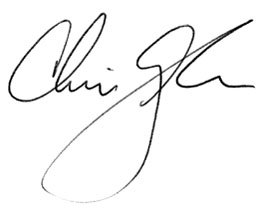Somewhere along the line, maybe in their 22nd or 23rd year of formal education, medical doctors apparently lose the ability to distinguish shinola from ... the other stuff. Fortunately, the good folks at the FDA are on the case.
It’s taken a couple of years since the widely publicized, billion-dollar fines of Pfizer and Lilly for off-label product promotion for the full, chilling effects to reach ophthalmology. But you can easily spot them now in this profession. I’m not talking about the truly effective measures like keeping dangerous influences (pens, golf balls, well-fed spouses) a safe distance from impressionable medical minds. I mean actually hindering communication among doctors.
One of the places that becomes obvious is in the area of “promotional” activities by industry, which according the agency, is essentially anything but an accredited CME course or a peer-reviewed publication. Share off-label information in accredited course or journal publication, as long as the information is identified as such, and you’re safe. Complicating the issue is the fact that the agency considers any data other than that used to secure the initial approval of a product to be off-label. So even legitimate, unbiased, evidence-based data that deviates from the original labeling data is considered off-label and restricted in promotional settings.
Off-label promotion is not inherently evil. Even the FDA recognizes this, at least if lip service counts as recognition.
In seeking to combat the evils of unfounded and distorted marketing messages, the agency’s policies have actually inhibited one of the best methods of accomplishing that goal: letting doctors share their clinical experience.
So let’s go the other way. Let’s find a way to embrace, even encourage well-founded, scientifically valid off-label communication. Instead of running from and restricting off-label communication, the FDA should manage and encourage legitimate off-label communication in recognition of the reality that some of the best information about drugs, devices and instruments develops after the FDA approval, when “field-testing” in actual practice begins.
Let’s get even closer to home. Why shouldn’t each specialty have a hand in determining what is legitimate off-label use? Take some of the dollars already being paid to the FDA for user fees and send enough of it the AAO’s way to fund a panel of eye surgeons who would evaluate proposed off-label promotion from manufacturers and render an opinion on its validity and impartiality. Industry is already accustomed to paying user fees that keep the FDA afloat. Think they’d kick in a little more to be free of the burden of being bound and gagged with regard to promotion? I’m betting they would.
There are a thousand different ways to protect a patient population ill-prepared to sift off-label fact from fiction while alllowing legitimate business promotion. Stifling communication among physicians is not one of them.




